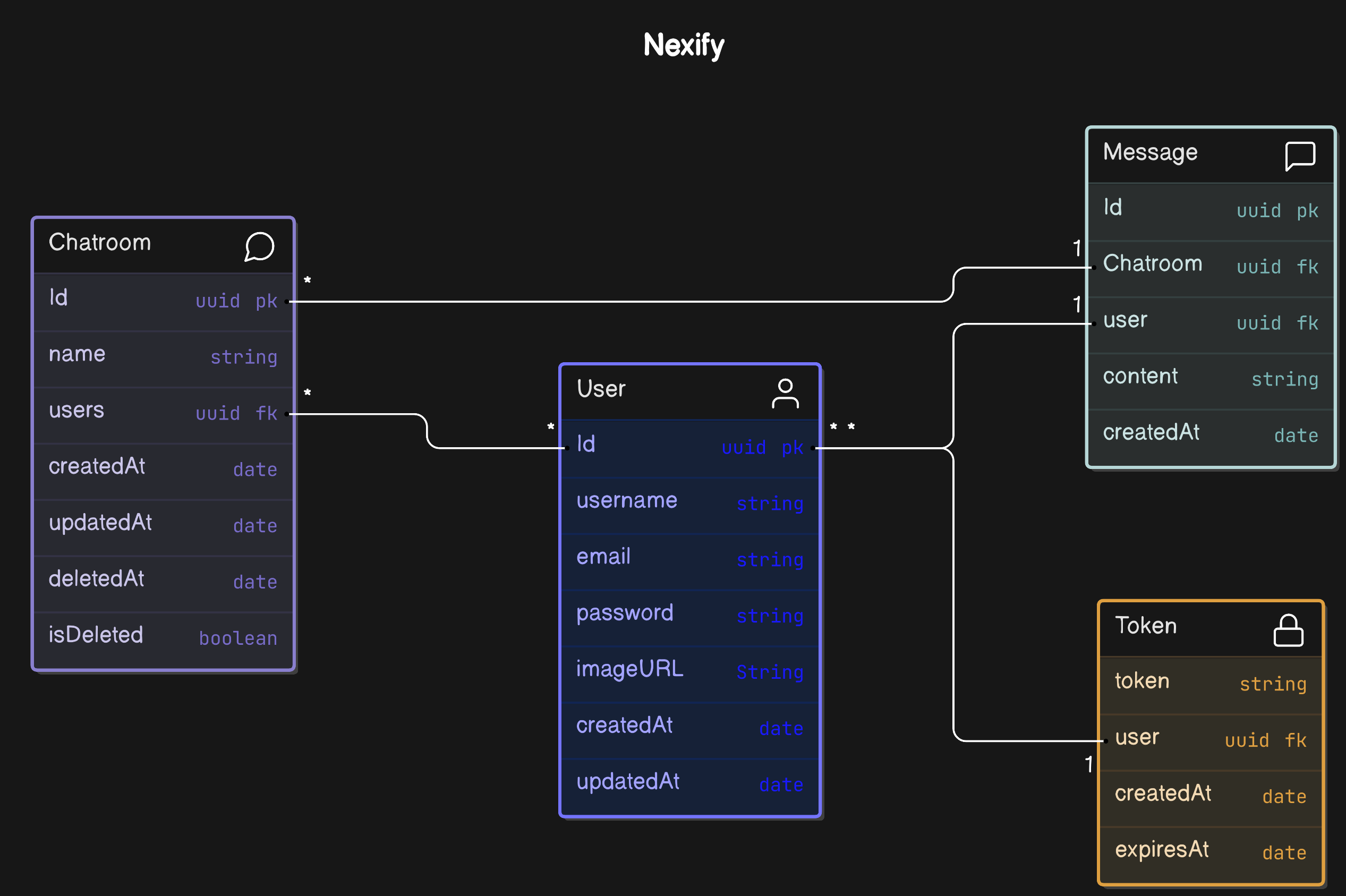This is the backend of the Nexify project. It is a RESTful API that provides the necessary endpoints for the frontend to interact with the database.
Nexify is a real-time chat application that allows users to create profiles, chat with each other, form groups, and send chat invites. This repository contains the backend code for Nexify, built using Node.js, Express.js, and MongoDB.
- User authentication and authorization using JWT
- Real-time messaging with Socket.IO
- User and chat room management
- API documentation with Swagger
- Node.js
- Express.js
- MongoDB
- Mongoose
- Socket.IO
- JWT
- bcrypt.js
- express-validator
- Swagger
- MVC Architecture (Model View Controller)
.
├── assets
├── config
│ └── mongodb.js
├── controllers
│ ├── auth.controllers.js
│ ├── chat.controllers.js
│ ├── message.controllers.js
│ └── user.controllers.js
├── docs
│ └── swagger.js
├── helpers
│ ├── bcrypt.helpers.js
│ ├── jwt.helpers.js
│ └── socket.helpers.js
├── middleware
│ ├── auth.middleware.js
│ └── validateFields.js
├── models
│ ├── chatroom.model.js
│ ├── message.model.js
│ ├── token.model.js
│ └── user.model.js
├── routes
│ ├── auth.routes.js
│ ├── chat.routes.js
│ ├── message.routes.js
│ └── user.routes.js
├── .env
├── server.js
├── package.json
└── README.md
- Clone the repository
git clone https://github.com/maryqu3en/Nexify-Backend.git
cd Nexify-Backend
- Run
npm installto install all dependencies - Create a
.envfile and add the following environment variables:
PORT=3000
JWT_SECRET=<your-jwt-secret>
MONGODB_URI=<your mongodb uri>
- Run
npm startto start the server - Visit
http://localhost:3000/api-docsto view the Swagger documentation
This project is licensed under the MIT License - see the LICENSE file for details.
